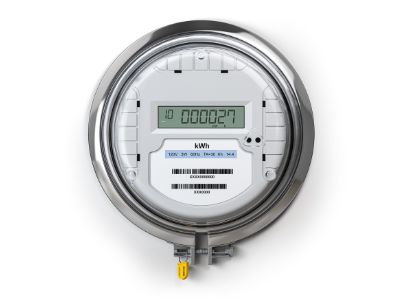The Essentials of Home Electricity
Having an electrical grid is part of what defines the US as a first-world country. These days, it is essential, especially as the demand for “work from home” increases. People cannot function without it, yet it is a mystery to most.
Everyone knows that the light comes on when they flip a switch, but they may not know why. Electricity is energy produced by charged particles. In a home, energy moves through wires, and switches and plugs are used to create a circuit or a continuously flowing circle of connection for the electricity.
Defining the Parts of the Electrical System

While most people can recognize a switch or an outlet, they may not be aware of some of the other parts of the electrical system in the home. Below is a breakdown of main major components of a residential electrical setup:
- Electric Meter: The electric meter is the mechanism that measures the amount of electricity that goes through it. The electrical wires from the municipal power grid (underground or overhead) connect to the house through the electric meter.
- Disconnect Switch: This switch cuts power to the entire home. This switch is usually part of the breaker panel but can be separate from it.
- Breaker Panel: The home’s electrical panel is where the electricity from the supply lines is divided into various circuits throughout the house. Switches control each circuit and are often labeled by room or by the appliance they service.
- Outlets: Also called receptacles, electrical outlets have hot and neutral wires. When something is plugged in, the electricity passes from the hot wire through the machine (for example, a hairdryer), turning it on. The electricity then flows through the plug’s second wire and back into the neutral wire of the outlet, thus creating a circuit.
- Switches: Switches are used to interrupt a circuit from the breaker box to (usually) a light of some kind. Switches come in many different styles, including dimmers and knob switches.
Warning Signs of Electrical Problems

If a homeowner is concerned about the age of wiring or electrical problems in general, there are a few indicators to look for that demonstrate a problem with the electrical wiring. If wiring is older, it may not be up to code, as the rules for electrical repairs change as technology improves. Having a consultation with an electrician about these concerns is never a bad idea.
If a homeowner notices any of these things, they should seek out a professional sooner rather than later:
- A sparking outlet
- A burning plastic smell
- Flickering lights
- Fading lights
Be Safe and Call an Electrician About Electrical Repairs
Electricity is a fantastic tool, but it can be very dangerous, especially to someone who is not trained. Electrical safety is paramount in preventing the worst, including fire and electric shock. A homeowner should not do electrical work because they don’t have the proper training. Hiring a professional electrician costs less than someone’s life.
About Elite Electric, Plumbing & Air
After serving Port St. Lucie, FL, and the surrounding communities for more than 30 years, Elite Electric, Plumbing & Air has been named best of HomeAdvisor in 2021 and is accredited by the BBB and NATE. They offer same-day service, courteous technicians, and straightforward pricing. Call them today for electrical services in Port St. Lucie, FL.

